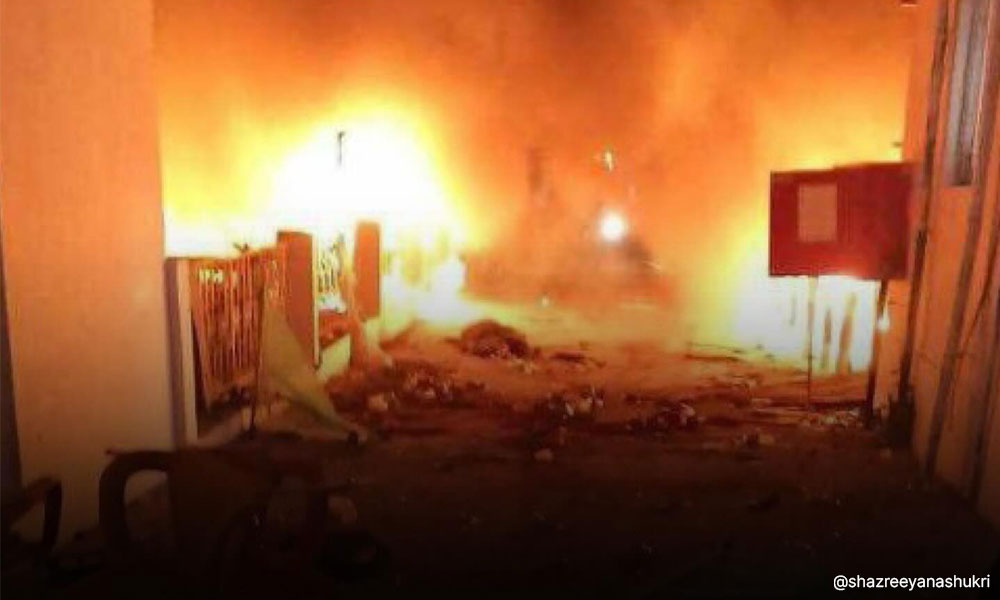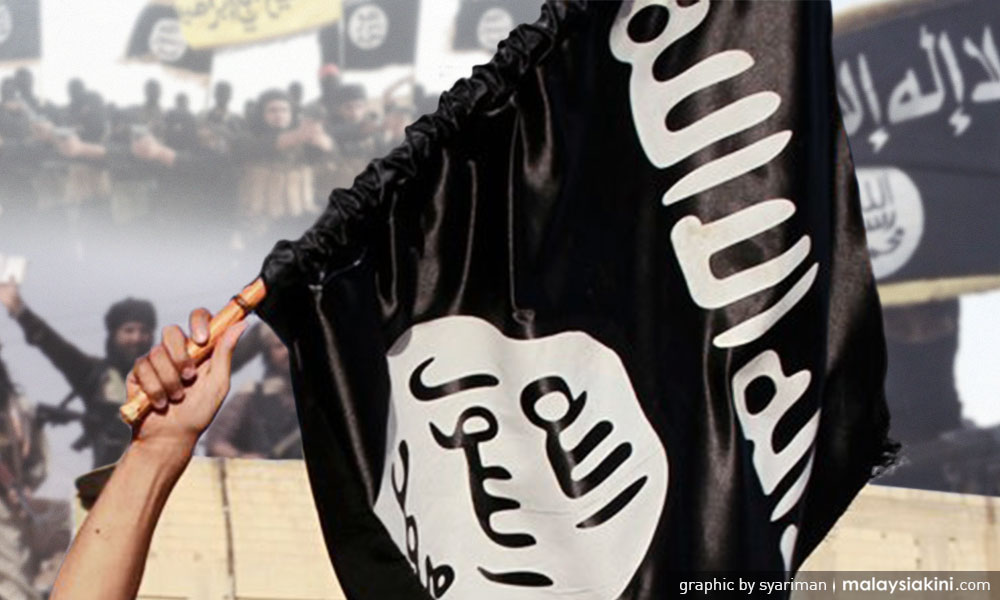LETTER | The ongoing conflict between Israel and Gaza has significant implications for global security and intelligence forces. It is likely to incite terrorist groups, whose actions are based on a distorted religious ideology, to launch attacks across the world.
On Tuesday, two Swedish nationals were fatally shot and a third individual was wounded in Brussels. A man who identified himself as a member of the Islamic State claimed responsibility for the attack in a video posted online, specifically targeting Swedish citizens.
Consequently, Belgium has raised its terror alert to its highest level.
As the investigation is still ongoing, it is unclear whether this attack was motivated by the current conflict in Gaza or the recent burning of the al-Quran and other acts in Sweden that have outraged Muslims worldwide.
In France, a teacher was fatally stabbed and three others were wounded in a school attack by a former student who is suspected of being radicalised.
Additionally, the Louvre Museum and Versailles Palace were evacuated last Saturday after receiving a bomb threat.

In response to these events, France deployed 7,000 soldiers and raised its alert level to the highest position.
Back home, last Saturday, a significant number of shoppers and employees were forced to evacuate the Mid Valley Southkey Mall in Johor Bahru due to a security threat conveyed through an anonymous phone call.
As per Malaysiakini’s report, Raub Selamat, the district police chief of Johor Bahru Selatan, has stated that the unidentified caller is suspected to be a foreigner.

The caller explicitly expressed his intention to place an explosive device within the vicinity of the shopping mall, and discouraged demonstration of support toward Palestine.
Deputy Prime Minister Ahmad Zahid Hamidi, firmly affirmed that Malaysia will persist in its support for the Palestinian people's struggle despite the recent bomb threat incident.
Despite the absence of a definitive connection between these incidents and the ongoing conflict between Israel and Gaza, it cannot be entirely discounted that the inspiration for these events may be linked to the conflict.
The recent escalation of hostilities in Gaza has resulted in a significant displacement of approximately one million residents from the northern region to the southern areas.
Additionally, the number of casualties has reached a distressing figure of over 2,600 fatalities, a statistic that has been extensively documented by numerous international news outlets.
Moreover, the widespread dissemination of pleas from children and women detailing their suffering due to the destruction of their homes, schools and mosques is likely to deeply impact any individual who witnesses such footage.
Furthermore, the collective burial of those who lost their lives in this conflict serves as an additional motivation for those who are moved by such imagery and feel compelled to take action.
Misusing conflict for their own agenda
The conflict in Gaza has assumed a pivotal role as a catalyst of utmost significance in the proliferation of terrorist organisations on a global scale.
It is noteworthy that terrorist organisations that are rooted in religious ideology, such as Al Qaeda and Islamic State, have extensively utilised the predicament of the Palestinians in their propaganda materials, operating on a global scale.
As per a report from the website longwarjournal.org, the branches of Al Qaeda in North Africa and West Africa, namely Al Qaeda in the Islamic Maghreb (AQIM) and the Group for Support of Islam and Muslims (JNIM), have expressed their support for the extensive assault by the Palestinians on Israel.
This aligns them with other branches of Al Qaeda worldwide, such as Harakat al-Shabaab al-Mujahideen, commonly known as Al-Shabaab in East Africa, which have also expressed their jubilation for the Hamas-led invasion of Israel in a recent statement.
Al-Shabaab now joins Al Qaeda's branches in Yemen, the Indian subcontinent, and Syria in congratulating the Palestinian fighters.
Additionally, although not an official al-Qaeda branch, the Pakistani Taliban, a significant ally of al-Qaeda, has also voiced its support for the Hamas-led invasion.

Moreover, Jemmah Islamiyah, predominantly active in Southeast Asia, consistently employs this conflict as its primary propaganda theme to garner increased backing from adherents.
Similarly, Jemaah Ansharut Daulah (JAD) and East Indonesia Mujahideen, operating within Indonesia, as well as the Maute Group and the Abu Sayyaf Group (ASG), operating in the Philippines, have capitalised on this conflict as a fundamental strategy to attract support from their sympathisers.
Malaysian terrorist organisations such as the Kumpulan Militan Malaysia and the Katibah Nusantara, which have affiliations with al-Qaeda and Islamic State, hold a firm belief in the Palestinian cause.
According to a report by the New Lines Institute for Strategy and Policy, Malaysia has experienced a notable increase in religious fundamentalism in recent decades.
This emerging trend, coupled with the ongoing Israel-Gaza conflict, has the potential to incite and motivate individuals to carry out attacks on locations frequently visited by foreigners hailing from countries that endorse Israel.
The Johor incident, although seemingly unrelated to our context, warrants thorough investigation by our enforcement and intelligence agencies.
Expect chain reaction
This is crucial in order to ascertain whether it was a dry run conducted by terrorist groups to gauge public and enforcement agency responses in Malaysia.
Consequently, it is imperative that we do not underestimate the significance of this incident.
The recent occurrences in Belgium and France serve as significant indicators of potential terrorist attacks that may transpire in other nations, particularly those that express support for Israel.
In a nutshell, I firmly believe that these incidents have initiated a chain reaction that will swiftly thrive in the foreseeable future.
Writer is the principal consultant of Arunachala Research & Consultancy Sdn Bhd (Arrescon), a think tank specialising in strategic national and geo-political matters.
The views expressed here are those of the author/contributor and do not necessarily represent the views of Malaysiakini.

